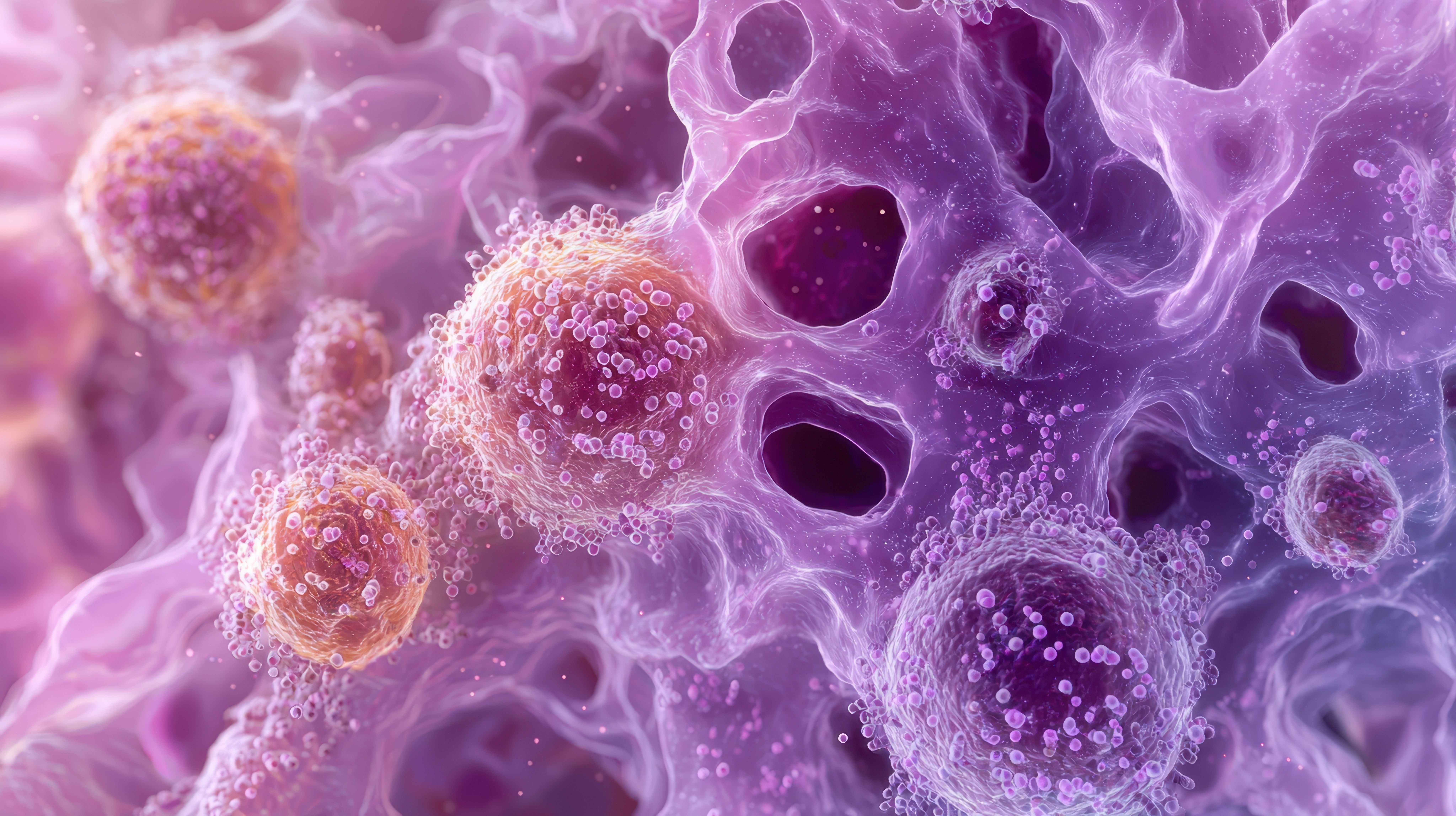Article
Preliminary Study Data Show Positive Immune Response in Women with Ductal Carcinoma
Author(s):
DCIS is a noninvasive condition in which abnormal cells are found in the lining of a breast duct but have not spread to other tissues in the breast.
Researchers have announced positive preliminary results from the phase 2 VADIS trial, demonstrating that nelipepimut-S (NPS) can induce an antigen-specific antitumor immune response in a subset of women with ductal carcinoma of the breast.
The study is investigating NPS in combination with granulocyte-macrophage colony-stimulating factor (GM-CSF). The study participants are women with ductal carcinoma in situ (DCIS) of the breast who are human leukocyte antigen-A2 or A3 positive, express human epidermal growth factor receptor 2 (HER2) at immunohistochemical 1+, 2+, or 3+ levels, and are pre- or post-menopausal.
DCIS is a noninvasive condition in which abnormal cells are found in the lining of a breast duct but have not spread to other tissues in the breast. It is the most common type of breast neoplasm with malignant potential and may sometimes become invasive and spread to other tissues.
Treatment options for the disease currently include breast-conserving surgery and radiation therapy, either with or without tamoxifen, breast-conserving surgery without radiation therapy, or total mastectomy with or without tamoxifen. Thus far, no targeted or immune therapies have shown any definite clinical activity in DCIS.
The study has enrolled 13 patients, 9 of whom are receiving NPS plus GM-CSF while 4 receive GM-CSF only. The relative frequency of NPS-specific CD8 cytotoxic T-lymphocytes as a percentage was twice as large in the patients receiving NPS.
Notably, the relative frequency of NPS-specific CD8 cytotoxic T-lymphocytes as a percentage was twice as high in the active group compared with the control group. The relative magnitude of change in the percentage mean values in patients treated with NPS over time was an 11-fold increase, suggested a continued antigen-specific T-cell response post-NPS vaccination, according to the study.
The findings indicate in vivo immunogenicity of the cancer vaccine in DCIS, which supports the possibility that NPS could decrease the rate of recurrences in earlier-stage disease, according to the study authors.
“While additional analyses of certain histologic and molecular markers of the patients’ immune responses against the NPS and other HER2 antigenic epitopes are currently ongoing, these initial immunobiological results from the VADIS study are encouraging,” said Elizabeth Mittendorf, PhD, MD, study principal investigator, in a statement.
REFERENCE
Sellas Announces Positive Antigen-Specific Immune Response Data for Nelipepimut-S (NPS) in Women with Ductal Carcinoma In Situ (DCIS) of the Breast from Phase 2 VADIS Study [news release]. BioSpace; March 18, 2020. https://www.biospace.com/article/releases/sellas-announces-positive-antigen-specific-immune-response-data-for-nelipepimut-s-nps-in-women-with-ductal-carcinoma-in-situ-dcis-of-the-breast-from-phase-2-vadis-study/. Accessed March 26, 2020.
Newsletter
Stay informed on drug updates, treatment guidelines, and pharmacy practice trends—subscribe to Pharmacy Times for weekly clinical insights.





